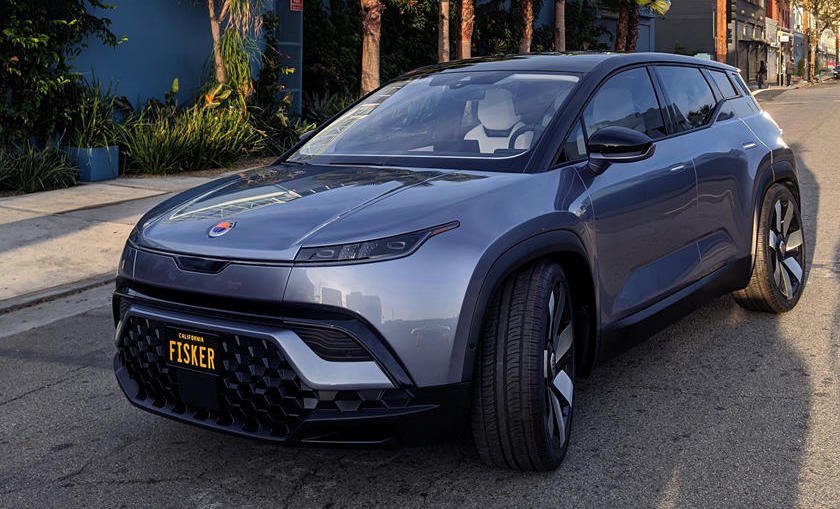With the Fisker Ocean SUV on track to enter production in Austria early next year, the US electric vehicle start-up is shifting attention to the development of the smaller, US-built Pear city car – which, it says, is crucial to its ambitious growth plans.
The Fisker Ocean is a Tesla Model 3 rival due to land in the UK in around a year’s time, having made its public debut at this year’s Festival of Speed.
Meanwhile, the Pear (Personal Electric Automotive Revolution) is a much more compact and affordable proposition. (A starting price of less than £28,000 has been mooted.) Company boss Henrik Fisker told Autocar the Pear “is the vehicle that ultimately will take us to a million vehicles – we hope – per year, in 2027.”
It will be built by technology manufacturing giant Foxconn at a facility in Ohio – previously owned by General Motors – at an initial rate of 250,000 units per year from 2024.
Design preview images issued so far have not given away many details, beyond hinting at various cues shared with the Ocean. But already it is clear that in its pricing, size and volume, the Pear could be a viable rival for the affordable EV trio on the way from Volkswagen Group brands Cupra, Skoda and VW, set to launch in 2025.
The Pear will be based on a dedicated steel platform – cheaper than the aluminium skateboard architecture of the Ocean – which will be used to spin off a further two EVs. The prevailing focus of its development programme is streamlining the manufacturing costs to ensure it can be sold as “a premium car for under $30,000”.
Fisker has appointed Alpay Uguz, previously general manager of BMW’s SUV production line in South Carolina, as a “manufacturing guru” to work with Foxconn on integrating cost efficiencies into the line, which, Henrik Fisker says, forms part of his firm’s ultimate ambition “to revolutionise automotive manufacturing and, to a certain extent, supply chain.”
Details of how the company can achieve this remain to be seen, but he said there is a “huge possibility for Fisker to have input in the factory” and the company is committed to keeping the number of components in the car to an absolute minimum.
Details of how the company can achieve this remain to be seen, but he said there is a “huge possibility for Fisker to have input in the factory” and the company is committed to keeping the number of components in the car to an absolute minimum.
Fisker describes the Pear as “kind of a funky vehicle” and says it is difficult to slot it into a segment: “I guess you’d call it a crossover but it doesn’t really look like an SUV. It looks like a futuristic little space shuttle – to describe it best.”
For that reason, he said, “it’s probably a little risky” because of the difficulties in benchmarking cars outside of core market segments and the fact that it has “a lot of unique features that have never been done before”.
He stopped short of detailing these but said the boot is accessed in a “very unique” way, rather than via a conventional hatch, and there will be a number of innovative storage solutions in the cabin.
Fisker: “We need to have a supercar”
Hot on the heels of both the Ocean and Pear will be the 2024 Fisker Ronin, a four-seat drop-top supercar being developed at the firm’s UK-based ‘Magic Works’ facility. Its tri-motor powertrain is intended to send it from 0-62mph in less than 2.0sec and Fisker is targeting a range of more than 600 miles. More importantly, it will serve as a test bed and a showcase for features of future high-volume cars.
Henrik Fisker said: “The benefit [of a supercar] is being able to explore new technologies that we normally wouldn’t be able to do on a high-volume car. For example, we are working on a very large integrated battery pack solution.
“We are also looking at expanding the use of luxurious recycled materials in the interior, which is probably too expensive right now for a high-volume car.”
But there is also the enthusiast aspect to consider, he said: “There’s also just emotion in it. I love cars: we need to have a supercar.”
Related News

